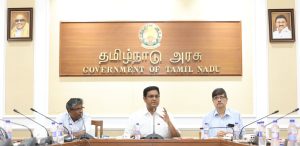India Emerges as New Laptop Hub as PLI Scheme Attracts Global Brands

India’s push for local electronics manufacturing is gaining traction as more global laptop brands begin shifting production away from China. This move is driven by the Indian government’s ₹17,000 crore Production Linked Incentive (PLI) 2.0 scheme for IT hardware, which encourages local manufacturing through financial incentives and access to government tenders.
Rising global trade tensions, especially between the US and China, have increased uncertainty around potential import tariffs on IT hardware. As a result, international companies are looking at India as a strategic alternative. Indian manufacturers are responding by expanding their capabilities and offering cost advantages, helped by lower tariffs and the benefits of the PLI scheme.
Currently, India imports around $11 billion worth of laptops annually, while local production stands at just $1 billion. However, the country’s manufacturing capacity is growing and could soon replace 10-20% of imports. Brands like Asus, MSI, HP, Lenovo, and Acer are now collaborating with Indian firms to build a local supply chain.
Asus recently partnered with VVDN Technologies to start a laptop assembly line in Manesar. This facility can now produce a laptop every 240 seconds. Asus executives emphasized their strong commitment to India and the importance of backward integration to reduce costs and strengthen local manufacturing.
Similarly, Syrma SGS has partnered with Taiwan-based MSI to manufacture laptops in India. The company is planning to expand capacity to attract more brands, especially for exports.
Dixon Technologies has invested over ₹1,000 crore in a new Tamil Nadu facility that will produce laptops for HP, Lenovo, and Asus. It also manufactures a significant portion of Acer’s domestic laptops from its Noida unit.
The PLI 2.0 scheme, launched in May 2023, aims to generate ₹3.5 lakh crore in production and create 47,000 jobs over six years. So far, it has led to ₹10,000 crore in production and created 3,900 jobs. While exports still face challenges due to the lack of testing labs in India, the ecosystem is gradually building up, making India a serious contender in the global IT hardware market.
Source: The Economic Times





Very good https://lc.cx/xjXBQT
Awesome https://lc.cx/xjXBQT